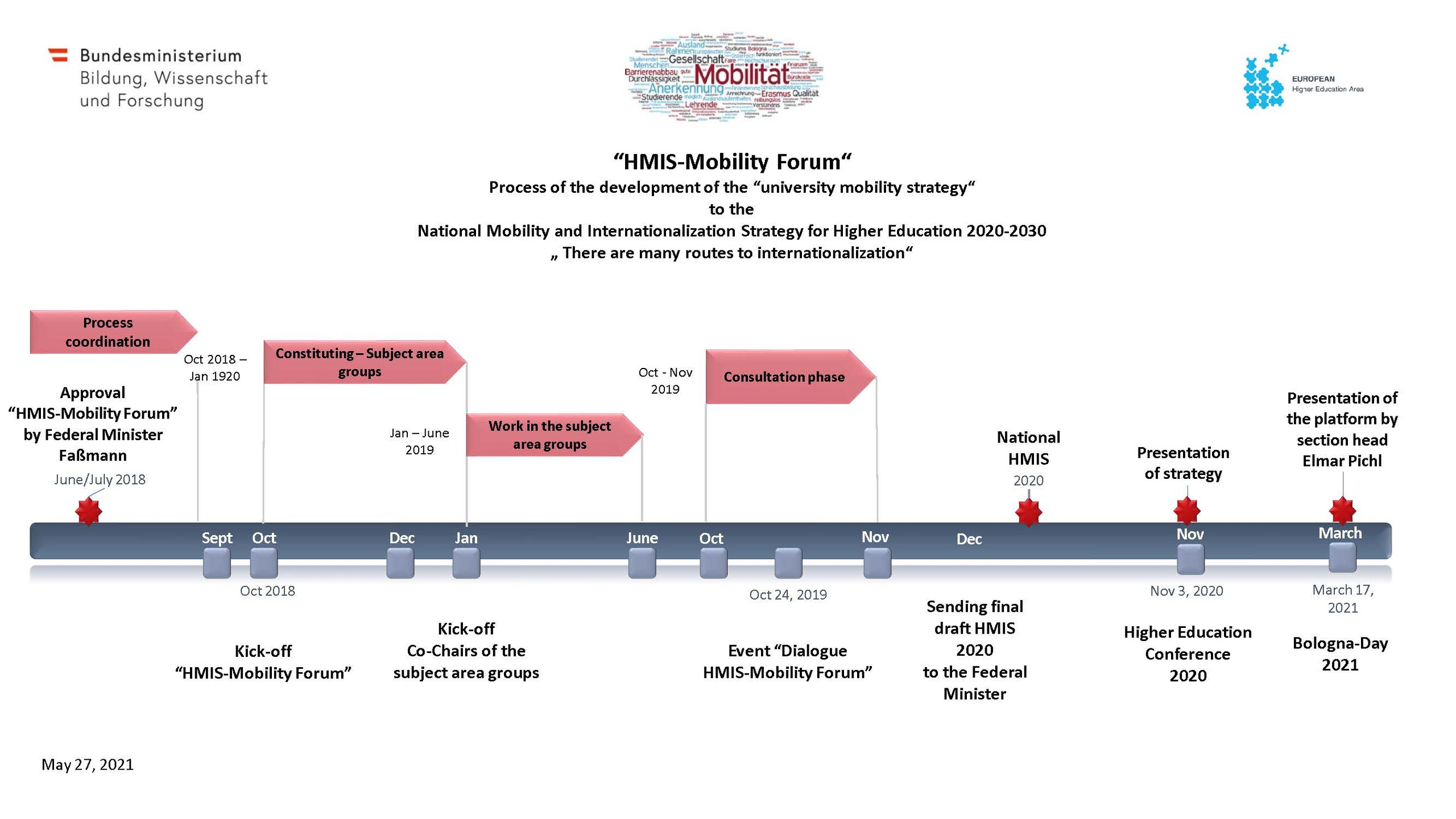
From HMS2016 to HMIS2030
The further development of the Higher Education Mobility Strategy 2016 into the National Higher Education Mobility and Internationalisation Strategy 2020-2030 focuses not only on improving the framework conditions for quality physical mobility but also on the internationalisation of studies and teaching. The focus is on the acquisition of international and intercultural competences for all groups of university staff.
The HMS Mobility Forum - a participatory process
The participatory approach is used as a method to solicit ideas and suggestions from a broad group of relevant stakeholders on a specific topic, document them accordingly and incorporate them into a result - in this case the further development of the university mobility strategy. The basis for the success of such a process is mutual trust in the competence of all participants and respect for each other, which is demonstrated in collegial exchange at eye level.
Phases and milestones of the participatory process for the further development of the Higher Education Mobility Strategy 2016 (HMS Mobility Forum)
At the kick-off event on 23 October 2018, representatives of the university management and all relevant stakeholders defined the topics on which the further development process should focus and which should subsequently be worked on in thematic field groups (TFG):
· Internationalisation of the curriculum including separate treatment of the focus area Joint Programmes (TFG 1 and TFG 1.1)
· Mobility promotion for teachers (TFG 2)
· Mobility funding for general university staff (TFG 3)
· Non-traditional and innovative forms of mobility (TFG 4)
· Mobility promotion for underrepresented student groups (TFG 5) and
· Quality assurance of mobility measures (TFG 6)
Between January and July 2019, a total of around 150 experts from all higher education sectors (from various functional levels and with diverse professional backgrounds) worked together with representatives of students, the BMBWF, the OeAD, interest groups and AQ Austria (i.e. in a simultaneous bottom-up and top-down approach) in the thematic field groups to develop proposals for recommendations and measures. This meant that a wide variety of perspectives and approaches to this topic could be incorporated into the further development. This phase was characterised by a committed, cross-sectoral dialogue and exchange of experience in the TFGs, which all participants found challenging but very productive and profitable.
The following literature list was developed together with our stakeholders in the course of the topic area groups: Literature
On 24 October 2019, the process culminated in the "dialogue forum", in which the same target group participated as a year earlier. In addition, the universities and all stakeholders involved had the opportunity to contribute their suggestions and comments to the draft strategy in a consultation phase that ran from October to November 2019.
The results from this participatory process formed the basis for the formulation of the "National Higher Education Mobility and Internationalisation Strategy 2020-2030 "Internationalisation in Many Ways" (HMIS2030)".

The joint cross-sectoral and cross-divisional work in the thematic field groups showed in an impressive way how valuable and enriching (and definitely also fun!) cooperation is for a common goal, and that internationalisation not only builds bridges across national borders, but also bridges within the Austrian higher education area.

Timeline